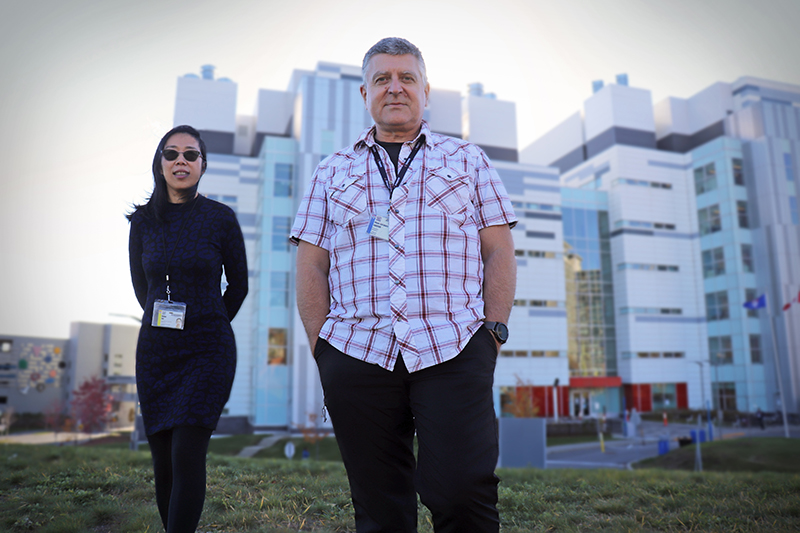RI-MUHC researchers led one of Québec Science magazine’s top 10 discoveries of the year
Jean-Jacques Lebrun and his team have discovered a promising treatment for triple negative breast cancer
One of the top ten scientific breakthroughs of 2021 selected by Québec Science magazine was achieved by researchers from the Research Institute of the McGill University Health Centre (RI-MUHC) and McGill University. Using CRISPR “genetic scissors”, the team of Jean-Jacques Lebrun, senior scientist in the Cancer Research Program at the RI-MUHC and professor in the Department of Medicine at McGill University, has discovered two cellular pathways that regulate the formation of tumors in triple-negative breast cancer, a particularly deadly cancer. The researchers then found two drugs that worked together to eradicate the tumors in preclinical models. These extremely promising results pave the way for clinical trials in humans.
This discovery, involving research associate Meiou Dai, and professors and researchers Suhad Ali and Sergio Burgos of the RI-MUHC, brings the hope of finally offering an effective treatment to women suffering from triple negative breast cancer, which has a high recurrence rate, a high potential for metastasis and shows resistance to conventional treatments.
Watch a short video about the discovery.
Find out more about this research in the January-February issue of Québec Science, now available on newsstands. Read the article on Discovery n°5 – Les faiblesses du cancer du sein révélées
The public is now invited to vote for THE top discovery of 2021.

About the study
The study “In vivo Genome-Wide CRISPR Screen Reveals Breast Cancer Vulnerabilities and synergistic mTOR/Hippo Targeted Combination Therapy”, published in June 2021 in Nature Communications, was conducted by Meiou Dai, Gang Yan, Ni Wang, Girija Daliah, Ashlin M Edick, Sophie Poulet, Julien Boudreault, Suhad Ali, Sergio A Burgos and Jean-Jacques Lebrun. This research was supported by funds from the Canadian Institutes for Health Research (CIHR).
Read the press release about the study


